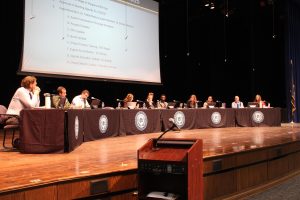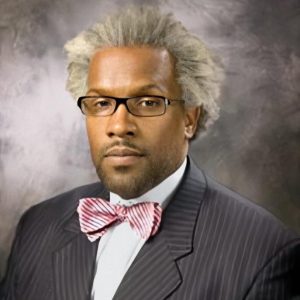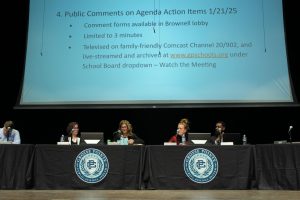Necessary administration restrictions prohibit traditions
October 24, 2022

Several administrative decisions have been made recently, such as the lock-in rule at homecoming, the limiting of classes on the third floor of the main building, and the banning of rushing the field at the homecoming game. Not all of these decisions necessarily set a new precedent, as some are merely a continuation of a past rule. However, the new vigor with which they were enforced caught many off-guard.
This year, students like Lily Petz ’24 were forced to serve Saturday detentions as a result of leaving the homecoming dance early. Petz said she tried to leave the dance and was stopped by principal Moussa Hamka in the parking lot and forced to go back into the school.
“I walked right through the parking lot, which probably wasn’t the smartest thing, but I wasn’t really worried about getting caught,” Petz said.
Despite never actually leaving school grounds, Petz was surprised when called down to the office the following Monday and given a Saturday detention.
“I asked Mr. Spryszak, since I did have to go back to the dance for an hour more, if that meant anything, and he said no,” Petz said. “It was (because) I left. That’s the reason I’m in trouble.”
Despite this negative experience, Petz said she chooses to keep an open mind, explaining that she understands why the administration might heavily enforce such a rule.
“I understand that it’s important because I know how people could use the dance as a cover to go somewhere,” Petz said. “Then the school is liable for them, so I understand how the administrators don’t want to get in trouble for that.”
Although Petz empathizes with the administration’s motives, the lack of clarity before the event made an impact on her view of future dances.
“I definitely won’t go back to a dance now because I don’t want to get in trouble again,” Petz said. “I think next time if they make it clear that you will have to serve a Saturday school if you leave, that would just be nice. I think it would keep a lot of people from even going to the dance if (they) knew that ahead of time.”
Hamka said the issue is one of liability, as many parents trust that their kids are under the supervision of the school during the hours of the dance.
“We want to let parents know that if you drop your student off at the door, and you see them go in, they are with us and they are safe until a certain time,” Hamka said. “At 9:30, 10:00, whenever the doors open, that is when you need to ensure that you know where your students are, and what they are doing.”
Similarly, Hamka added that the issue of rushing the field is also one of responsibility and safety. Although the tradition has carried on in the past, he decided it was too dangerous to continue when he started to see people getting hurt last year.
“A student did get trampled, and suffered injuries,” Hamka said. “We had a serious event when students were rushing the field. We ended up with a pile of students on top of each other and adults had to intervene. What I saw last year rattled me.”
The decision to limit classes on the third floor was one that disappointed students and teachers alike, however, as Hamka explains, the decision was not without its reasons.
“One factor is the accessibility for all students. There are students that are handicapped, students in wheelchairs, students who are injured that cannot make it up the stairs,” Hamka said. “It’s not uncommon for classes that are on the third floor to have to relocate down to the first or second floor to accommodate students.”
Furthermore, Hamka explains, as the enrollment numbers have steadily declined, the need for such spaces has also gone away, just as it had for the third floor of the IA building. However, the decreased access is still difficult for many, including Meaghan Dunham, who has taught from her class on the third floor since it reopened in 2000.
“It is a cool place and it’s original,” Dunham said. “A lot of the school has been updated or changed– it’s still got the original stage, it’s got the original floor. It is beautiful.”
Despite her disappointment, Dunham said she takes the change in stride, understanding that the decision is not one rooted in malicious intent. Rather than remaining upset, Dunham chooses to look to the future and forget everything else.
“It can be very frustrating, but you tell me a job where there aren’t frustrating moments. “You have to look on the bright side,” Dunham said. “And I’m a very glass-half-full kind of person.”
Dunham does, however, have a suggestion as to how the administration could change their policy to better the experience of students and faculty alike, one that is simple yet impactful.
“I think the lightening up of the snow day policy,” Dunham said. “Something unexpected and something that everybody gets…just unexpected little moments of happiness and levity.”















































































